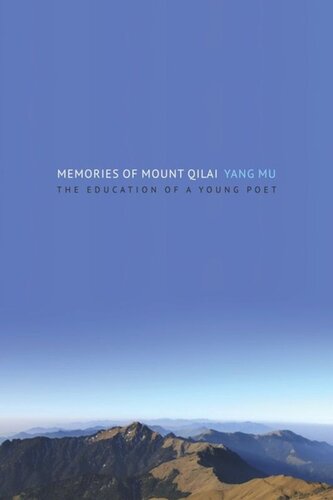

Most ebook files are in PDF format, so you can easily read them using various software such as Foxit Reader or directly on the Google Chrome browser.
Some ebook files are released by publishers in other formats such as .awz, .mobi, .epub, .fb2, etc. You may need to install specific software to read these formats on mobile/PC, such as Calibre.
Please read the tutorial at this link: https://ebookbell.com/faq
We offer FREE conversion to the popular formats you request; however, this may take some time. Therefore, right after payment, please email us, and we will try to provide the service as quickly as possible.
For some exceptional file formats or broken links (if any), please refrain from opening any disputes. Instead, email us first, and we will try to assist within a maximum of 6 hours.
EbookBell Team

4.8
74 reviewsHualien, on the Pacific coast of eastern Taiwan, and its mountains, especially Mount Qilai, were deeply inspirational for the young poet Yang Mu. A place of immense natural beauty and cultural heterogeneity, the city was also a site of extensive social, political, and cultural change in the twentieth century, from the Japanese occupation and the American bombings of World War II to the Chinese civil war, the White Terror, and the Cold War.
Taken as a whole, these evocative and allusive autobiographical essays provide a personal response to history as Taiwan transitioned from a Japanese colony to the Republic of China. Yang Mu recounts his childhood experiences under the Japanese, life in the mountains in proximity to indigenous people as his family took refuge from the American bombings, his initial encounters and cultural conflicts with Nationalist soldiers recently arrived from mainland China, the subsequent activities of the Nationalist government to consolidate power, and the island's burgeoning new manufacturing society.
Nevertheless, throughout those early years, Yang Mu remained anchored by a sense of place on Taiwan's eastern coast and amid its coastal mountains, over which stands Mount Qilai like a guardian spirit. This was the formative milieu of the young poet. Yang Mu seized on verse to develop a distinct persona and draw meaning from the currents of change reshuffling his world. These eloquent essays create an exciting, subjective realm meant to transcend the personal and historical limitations of the individual and the end of culture, "plundered and polluted by politics and industry long ago."